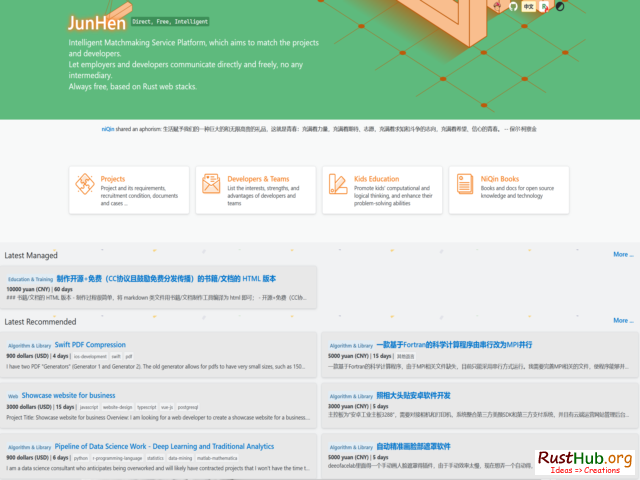
JunHen.com - Direct, Free, Intelligent
rust rust-web projects intelligent-matchmaking developers 项目 私活 兼职 jobs 工作
1397 Hits 22 Insides niQin 2023-08-30
Websites, apps, tools, etc, ...
Discovering new ideas, exploring new creations.
Rust ideas yesterday, shining creations today!

rust rust-web projects intelligent-matchmaking developers 项目 私活 兼职 jobs 工作
1397 Hits 22 Insides niQin 2023-08-30
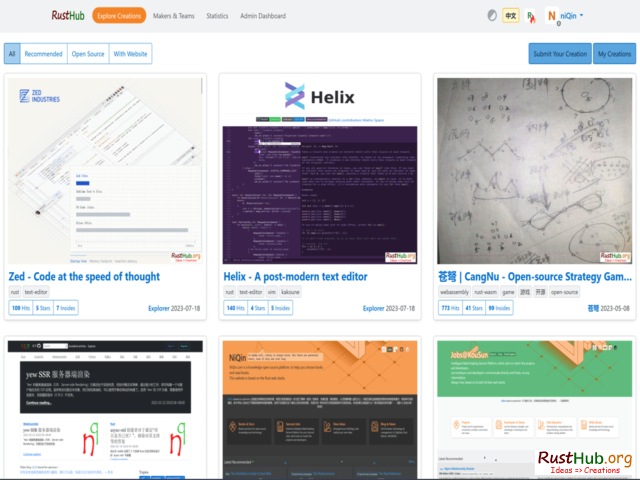
rust rust-web projects idea 创意 creation 作品 website app tool 网站 应用 工具
4622 Hits 13 Insides niQin 2023-08-30
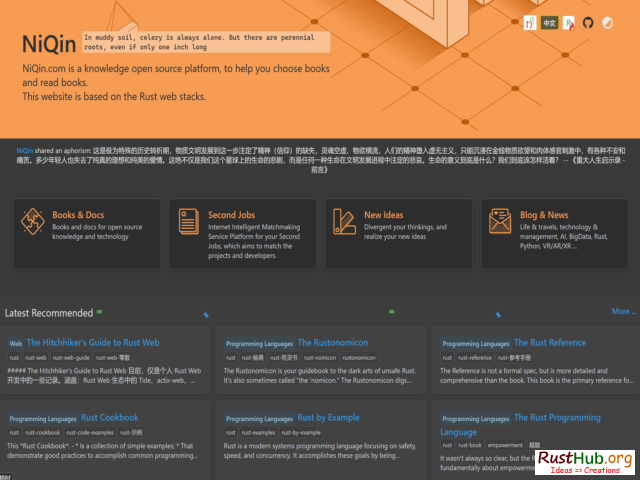
rust rust-web knowledge-open-source 知识开源 阅读 reading
1668 Hits 115 Insides niQin 2023-04-29

rust rust-web projects intelligent-matchmaking developers 项目 私活 兼职 jobs 工作
1397 Hits 22 Insides niQin 2023-08-30
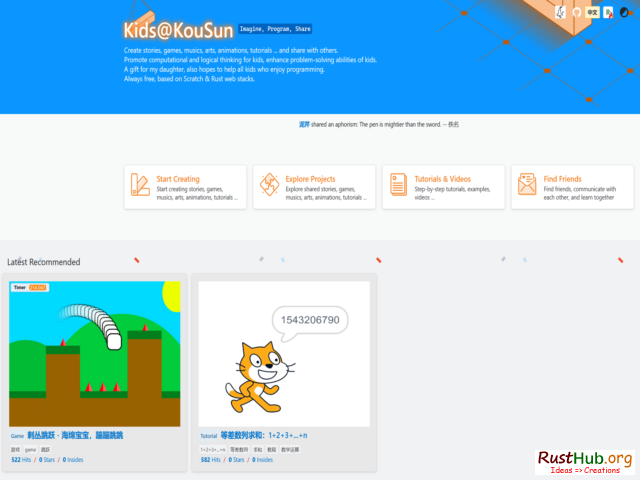

rust rust-web projects idea 创意 creation 作品 website app tool 网站 应用 工具
4622 Hits 13 Insides niQin 2023-08-30
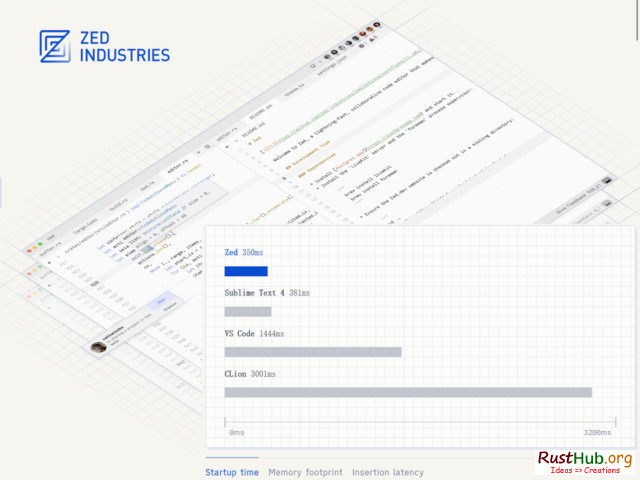
1255 Hits 19 Insides Explorer 2023-07-18
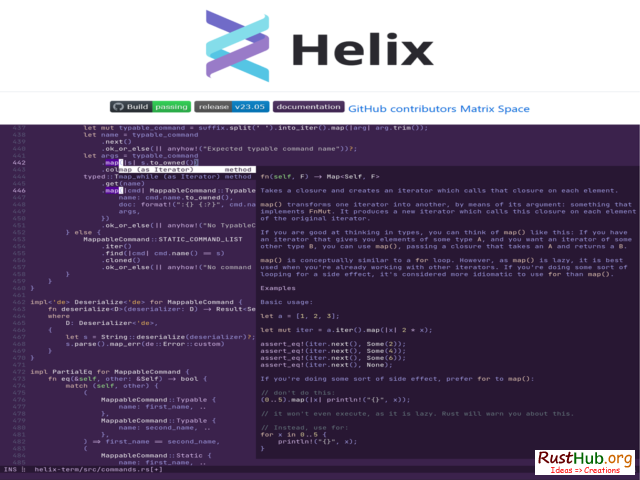
1427 Hits 13 Insides Explorer 2023-07-18
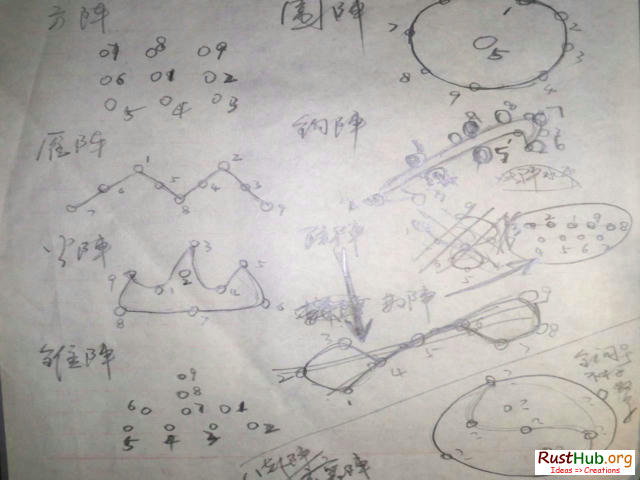
webassembly rust-wasm game 游戏 开源 open-source
1808 Hits 106 Insides 苍弩 2023-05-08
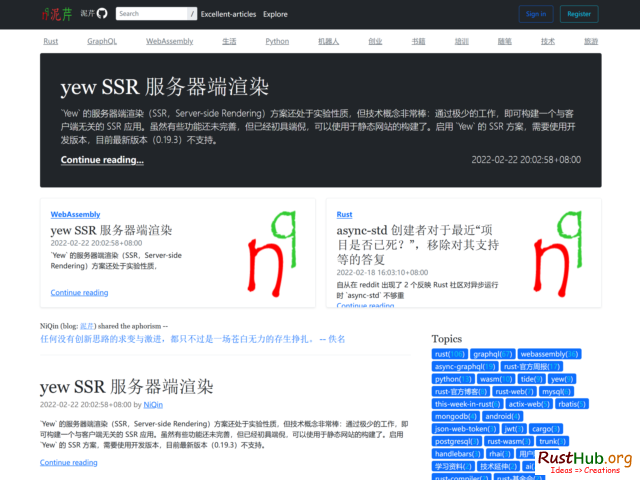
rust rust-web wasm yew blog handlebars mongodb cms
5150 Hits 104 Insides niQin 2023-05-05

rust rust-web knowledge-open-source 知识开源 阅读 reading
1668 Hits 115 Insides niQin 2023-04-29
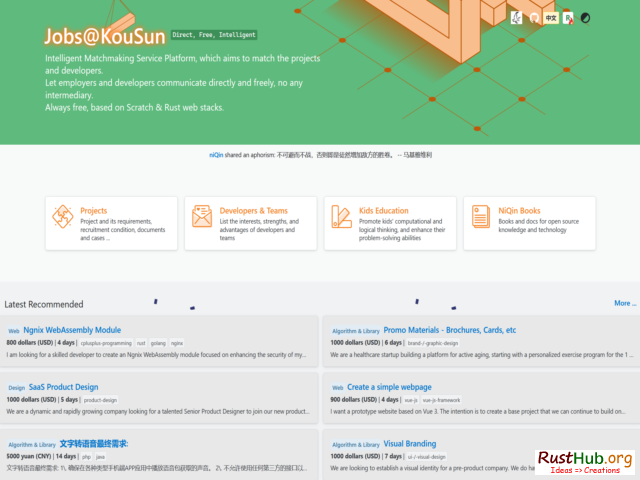
rust rust-web projects intelligent-matchmaking developers 项目 私活 兼职 jobs 工作
1722 Hits 107 Insides kousun 2023-08-29